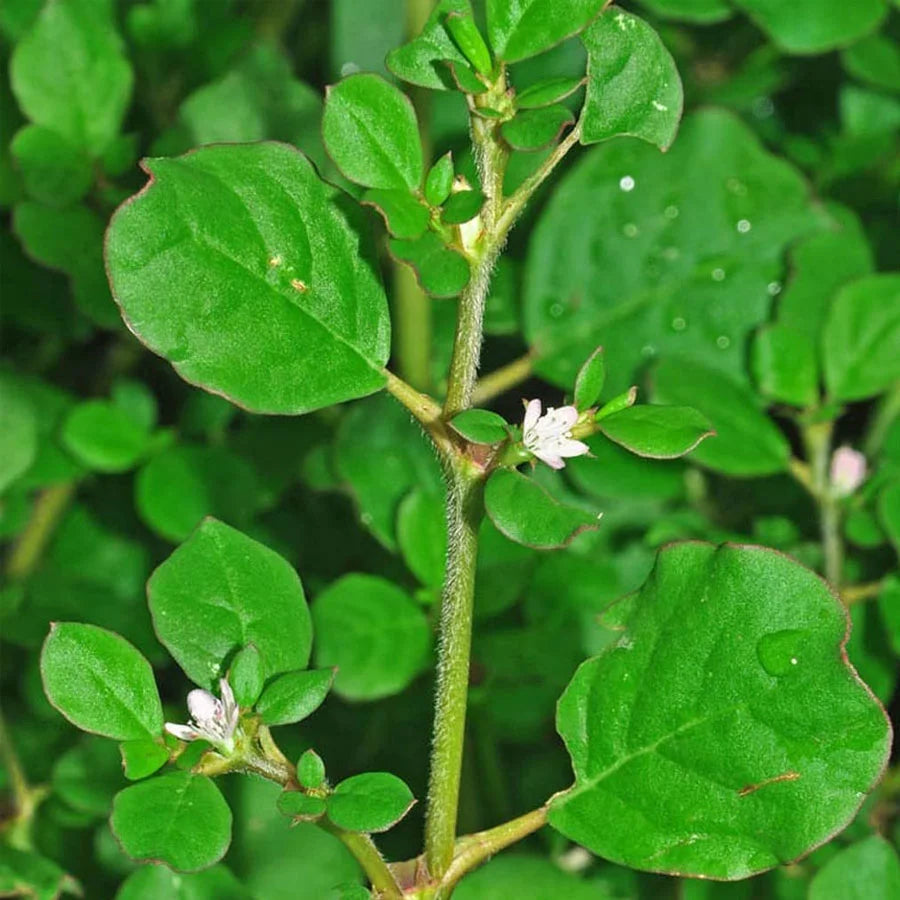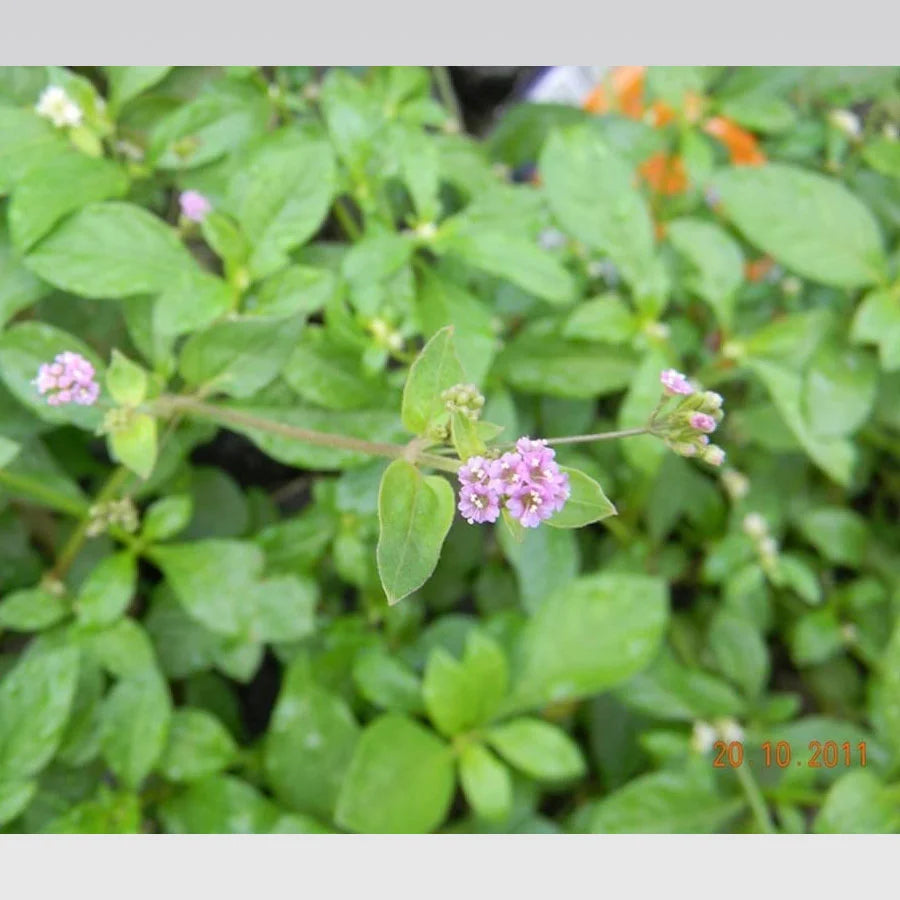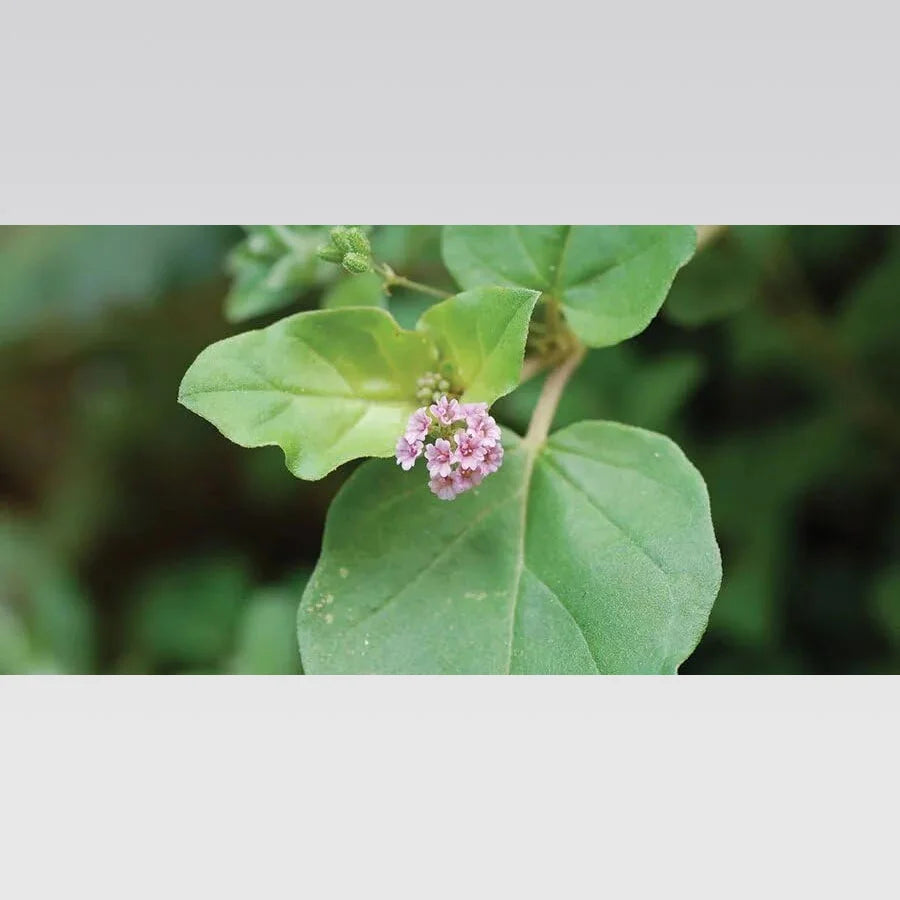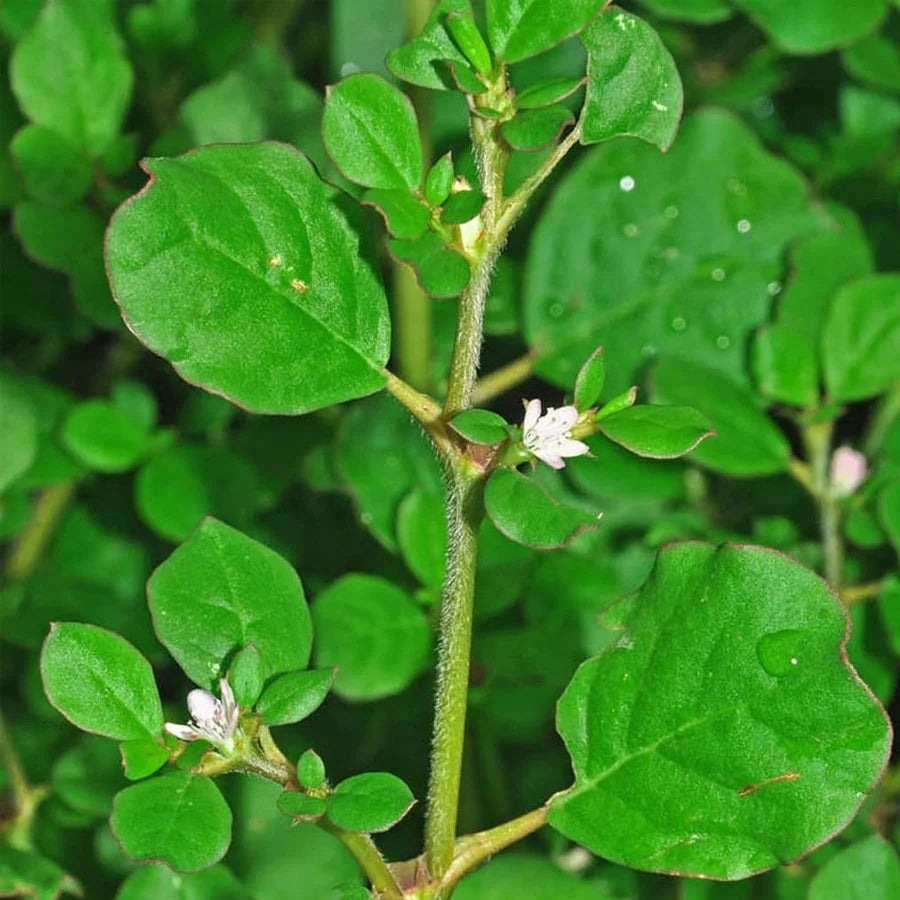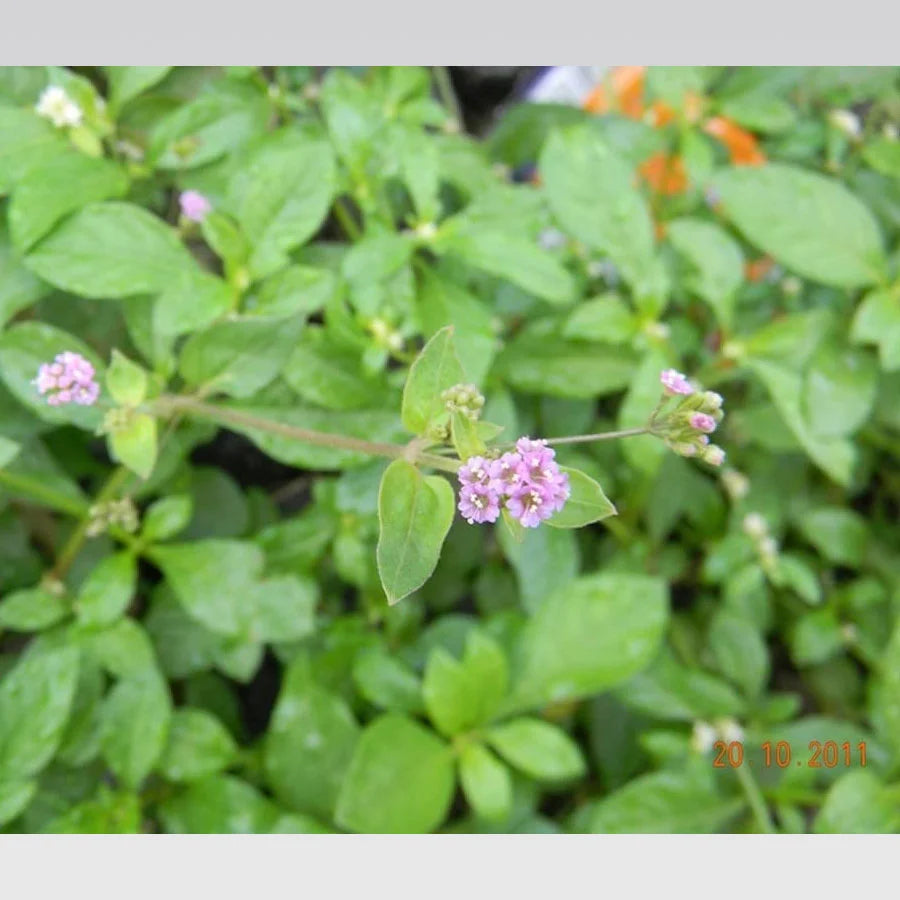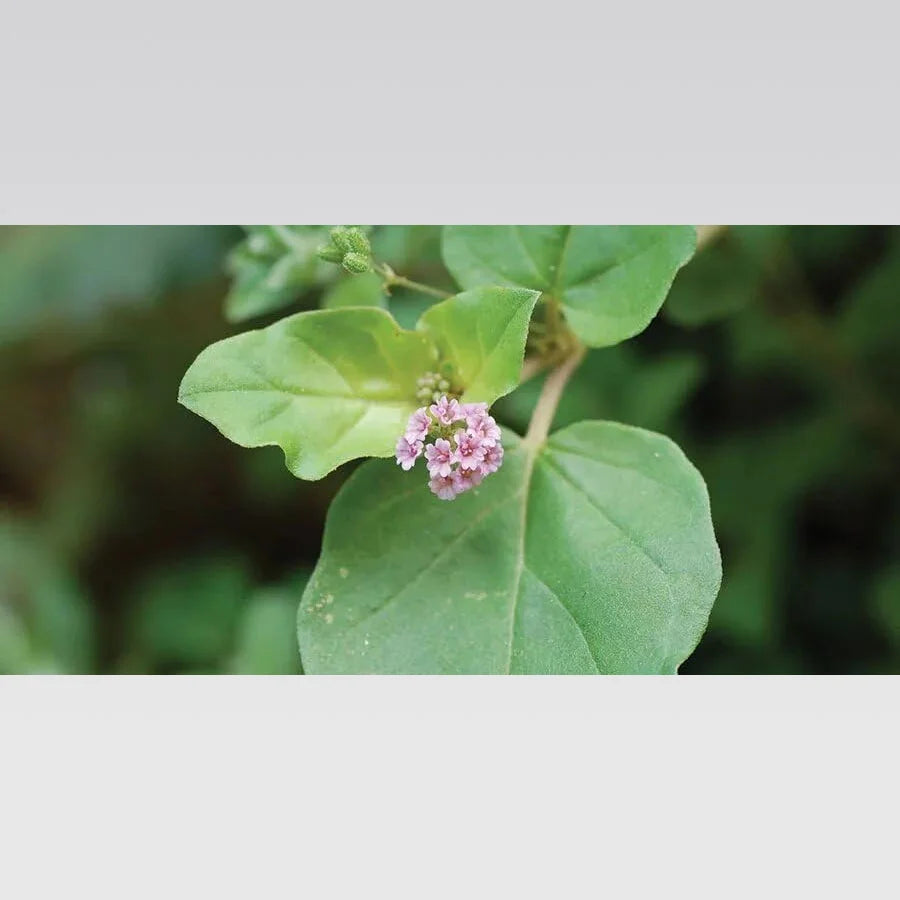Nursery Kart
Punarnava Plant, Tamilama / Beshakapore Live Plant
Punarnava Plant, Tamilama / Beshakapore Live Plant
Couldn't load pickup availability
What is Punarnava?
Punarnava, scientifically known as Boerhavia diffusa, is a revered herb in Ayurvedic medicine celebrated for its rejuvenating and restorative properties. This herb is native to India and has been utilized for centuries due to its extensive medicinal benefits. The name “Punarnava” translates to “rejuvenate” or “renew,” aptly reflecting its properties that invigorate the body and promote overall vitality.
Punarnava Plant, Boerhavia Diffusa Plant, Thazhuthama / Tamilama / Beshakapore / Medicinal Live Plant
In Ayurvedic traditions, Punarnava is known for supporting kidney health, improving liver function, and aiding in the detoxification processes of the body. Its leaves, roots, and flowers are commonly used in various medicinal preparations, emphasizing the importance of the entire plant in traditional herbal remedies. The herb is often consumed in the form of teas, powders, or capsules, showcasing its versatility and accessibility in promoting wellness.
Punarnava is also recognized for its active compounds, such as alkaloids, flavonoids, and a variety of antioxidants. These bioactive constituents contribute to its therapeutic effects, potentially combating inflammation, enhancing digestion, and supporting the body’s natural ability to filter toxins. Additionally, research indicates that Punarnava may have diuretic properties, making it particularly beneficial for managing fluid retention and promoting kidney health.
The cultural significance of Punarnava extends beyond medicinal uses; it is integral to various practices and celebrations in India. Often regarded as a vital herb in traditional systems of medicine, its presence in folk remedies and modern herbal supplements alike underscores its enduring relevance. Recognized not only in India, but also in other cultures, Punarnava is increasingly gaining attention worldwide for its holistic benefits and natural healing capabilities.
Health Benefits of Punarnava
Punarnava, scientifically known as Boerhaavia diffusa, is a traditional Ayurvedic herb revered for its numerous health benefits. One of its primary advantages is its ability to promote kidney health. Studies have indicated that Punarnava possesses diuretic properties, which aid in increasing urine output. This function is crucial for flushing out toxins from the body, thereby supporting overall renal function and potentially preventing the onset of kidney-related ailments such as urinary tract infections and edema.
Beyond its renal benefits, Punarnava also plays a significant role in aiding digestion. The herb has been traditionally used to relieve digestive disorders, such as constipation and bloating. Its natural compounds are believed to enhance the secretion of digestive enzymes, thereby facilitating better nutrient absorption and promoting a healthier gut microbiome. This aspect of Punarnava makes it an appealing option for those seeking natural remedies for digestive discomfort.
Inflammation is another area where Punarnava has shown promise. Research suggests that the herb’s anti-inflammatory properties might help in alleviating pain associated with conditions such as arthritis. The active compounds within Punarnava, including alkaloids and flavonoids, are thought to inhibit inflammatory pathways in the body, thereby offering relief from chronic inflammation.
Moreover, Punarnava enhances the body’s detoxification processes. Its ability to support liver health is particularly noteworthy, as the liver is essential for detoxifying harmful substances. Some studies have indicated that this herb can aid in liver regeneration and improve overall hepatic function. Thus, integrating Punarnava into one’s wellness routine can be beneficial not only for kidney and digestive health but also for maintaining systemic detoxification and combating inflammation.
Precautions and Side Effects
Punarnava, a revered herb in traditional Ayurvedic medicine, offers numerous health benefits, but it is essential to approach its use with caution. Individuals considering the incorporation of Punarnava into their routine should be aware of specific precautions and potential side effects associated with its consumption. Primarily, pregnant and breastfeeding women are advised to avoid this herb, as its safety during these periods has not been conclusively established. The active compounds in Punarnava may have physiological effects that could potentially influence fetal development or lactation.
Moreover, individuals with preexisting health conditions, particularly those involving kidney issues or severe liver dysfunction, should exercise caution when considering Punarnava. This herb has diuretic properties, which may exacerbate certain conditions or interact adversely with medications prescribed for kidney ailments. Consequently, patients with chronic illnesses must consult their healthcare providers prior to initiating Punarnava treatment.
Additionally, Punarnava may interact with various medications, especially those that are diuretics or have potential hepatotoxic effects. If a patient is currently on antihypertensive medications or any drugs impacting kidney function, the introduction of Punarnava should be conducted only under professional guidance to mitigate any risk of adverse reactions.
It is also prudent to be aware of potential side effects that may arise from the use of Punarnava, including gastrointestinal disturbances, allergic reactions, or electrolyte imbalances from excessive diuresis. Monitoring one’s body for any unusual symptoms upon using this herb can help in assessing tolerance. Thus, before embarking on a treatment plan involving Punarnava, seeking advice from healthcare professionals is imperative to ensure safe and effective usage tailored to individual health considerations.
Recommended Dosage of Punarnava
Punarnava, scientifically known as Boerrhavia diffusa, has gained recognition in traditional Ayurvedic medicine for its numerous health benefits, particularly in supporting kidney function, detoxification, and overall wellness. The recommended dosage of Punarnava can vary significantly based on its form and the individual’s specific health condition. It is crucial to note that a qualified Ayurvedic practitioner should ideally determine the precise dosage.
For Punarnava in powder form, the typical dosage ranges from 1 to 3 grams per day, taken with warm water or honey to aid absorption. This form allows for better control over the quantity consumed and makes it easier to integrate into various recipes. When using Punarnava capsules, it is generally recommended to take one or two capsules, two to three times daily, depending on the concentration of the supplement. Capsules offer convenience and are a favored choice for those who prefer standardized dosing.
Tinctures are another option, with a typical dosage of 5 to 15 drops, taken two to three times daily, mixed with water or as directed by a healthcare provider. The liquid form typically allows for quicker absorption into the bloodstream, thus providing prompt benefits. While determining the appropriate dosage, it is important to consider factors such as age, weight, and overall health. For instance, seniors or individuals with underlying health conditions may require adjustments in dosage to prevent adverse effects.
It is advisable to start with a lower dose of Punarnava and gradually increase it as the body adapts and responds to the herb’s effects. This gradual approach helps monitor any potential side effects and establishes individual tolerance levels. Overall, engaging with a qualified practitioner is the most reliable way to ensure safe and effective use of Punarnava, optimizing its benefits while minimizing any risks associated with improper dosage.
Conclusion
Punarnava, a prominent herb in traditional Ayurvedic medicine, has garnered significant attention for its various health benefits. From its potential to promote kidney health to its role in reducing inflammation, this versatile plant offers a wealth of properties that can enhance overall wellness. Its natural diuretic effects can help support the urinary system, while its rich antioxidants may contribute to fighting oxidative stress, ultimately benefiting bodily organs.
When considering the incorporation of Punarnava into your wellness routine, it is paramount to approach it with knowledge and care. Understanding the recommended dosage is essential, as is consulting with a healthcare professional before beginning any new herbal regimen. This is particularly important for individuals who are pregnant, nursing, or managing chronic health conditions, as the impact of herbs can vary from person to person.
Integrating Punarnava can be seamless, whether through herbal supplements or by incorporating it into your diet. For instance, you might consider adding Punarnava powder to smoothies, teas, or various dishes, providing both nutrition and flavor. It’s critical to monitor your body’s response when you start using this herb, making adjustments as necessary to suit your individual health needs.
In closing, Punarnava holds promise as a beneficial supplement within a holistic health framework. Embracing its advantages while being mindful of its precautions will pave the way for a healthier lifestyle. As you explore the potential of Punarnava, keep in mind the importance of adequate professional guidance, allowing you to maximize the benefits of this remarkable herb safely and effectively.
Share
